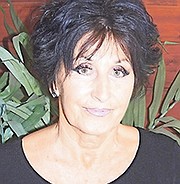By VICTORIA SARNE
Technology – a blessing and sometimes a curse. The worldwide web, the internet and a plethora of social media are firmly entrenched in our daily lives. There is now a generation which knows nothing of a life without social media. In 1990/91 the worldwide web was born, and although universal usage is a mere 20 or so years old and still growing exponentially, we rarely stop to think about a downside and yet there are significant signs that there are many relating to our emotional well-being and personal relationships.
Over the past 60 years or so there has been revolutionary progress in medical treatments delivering benefits and cures but often with side effects, some of them dangerous and potentially lethal. Doctors are required ethically and legally to state any adverse effects of medicines, which are also prescribed by law to carry a warning label listing potentially negative consequences.
The internet and social media platforms, came with no such warnings. It is to our detriment if we don’t stop now and review the entire spectrum of benefits and dangers to us as human beings. It’s time individually that we pause to consider the impact this phenomenon has on every aspect of our lives.
There is no question that every country in the world has benefited from much of this technology: we can quickly access information globally; instantly communicate at every level, find answers to questions whether personal, social or commercial.
But have we asked the question as posed by Sarah Hurwitz (Michelle Obama’s speechwriter) in a conversation with Vivek Murthy, former US Surgeon General, in an issue of Thrive: “How is technology affecting our emotional well-being and our relationships with each other? And if it is not contributing to stronger relationships, if it’s not giving us a place where we can actually be vulnerable and create relationships based on honest, open conversation, then it’s not necessarily serving us in the best way possible. That doesn’t mean that technology doesn’t have value. But we have to weigh pros against the consequences technology has for our connections with each other and with ourselves.”
We are all now programmed for instant gratification, so the quick fix when we are bored or lonely is to reach for an electronic device whether cell ‘phone, laptop, TV or iPad, to play a video game, shop online, watch a movie or use social media, instead of reaching out for a real, in-person human connection. We think we are connecting electronically, but we are not – we are looking at a screen – even with face-time which does not have the same effect as actually being able to touch another human by being physically present. Evidence is piling up of in-creasing loneliness and isolation through every age group.
We all know the meaning of the phrase “being fully present”, and Dr Murthy responded with a story about a friend who had a sick parent. When asked who made the most difference to his recovery, he had said, the surgeon. Not for the obvious reason of surgical skill, or because he spent a lot of time with the patient but because he spent five minutes of quality time at his bedside, not from the door, not reading notes or looking at a device. He listened to the father looking directly at him and by being able to put his his hand on the man’s arm.
Dr Murthy said: “I love that story because it reminds me of the fundamental truth that we need each other. There is very little in life that is truly achieved alone. We rely on and need each other during times of crisis and in our day to day. It is such an important lesson because if we forget it, then we live under the false belief that we don’t need anyone else. Living that way ignores that fundamental connection that we have to each other as beings who are all divine and who can heal each other in extraordinary ways.
“And that to me is one of the most fascinating consequences of thinking of love as a source of healing: You don’t need a medical degree or a nursing degree to be able to heal. The quality of our presence stretches time. I worry that the way we have used technology has, in fact, made time shrink. We can spend half an hour on the ‘phone with somebody, but if we’re distracted by checking our social media, then that can feel like very little time at all, versus putting that aside and truly focusing for five minutes on someone. Real presence can not only make time stretch, but it can be incredibly healing for them, and for us.”
A final quote from Sarah Hurwitz sums it up: “In Judaism, there’s a concept of ‘chesed’, which means ‘loving kindness.’ And it puts a huge premium on physical presence. Don’t just write a check, or send flowers. If someone is sick or in mourning, physically show up for them, be with them. Sometimes when you’re struggling, even if you can help others, you can’t help yourself. ‘The prisoner cannot free himself from prison’.”
So you need someone to take your hand and get you out of prison. Those moments of quality, of deep presence are very healing and transformative even if they’re short.” Make real time, in real time, for each other – it’s worth it.
• Victoria Sarne is an entrepreneur and writer. She headed a team to establish a shelter for abused women and children in Canada and was its first chairwoman. You can reach her at victoria.conversations@gmail.com, visit lifelineswritingservice.com, or call 467-1178.





Comments
Use the comment form below to begin a discussion about this content.
Sign in to comment
OpenID